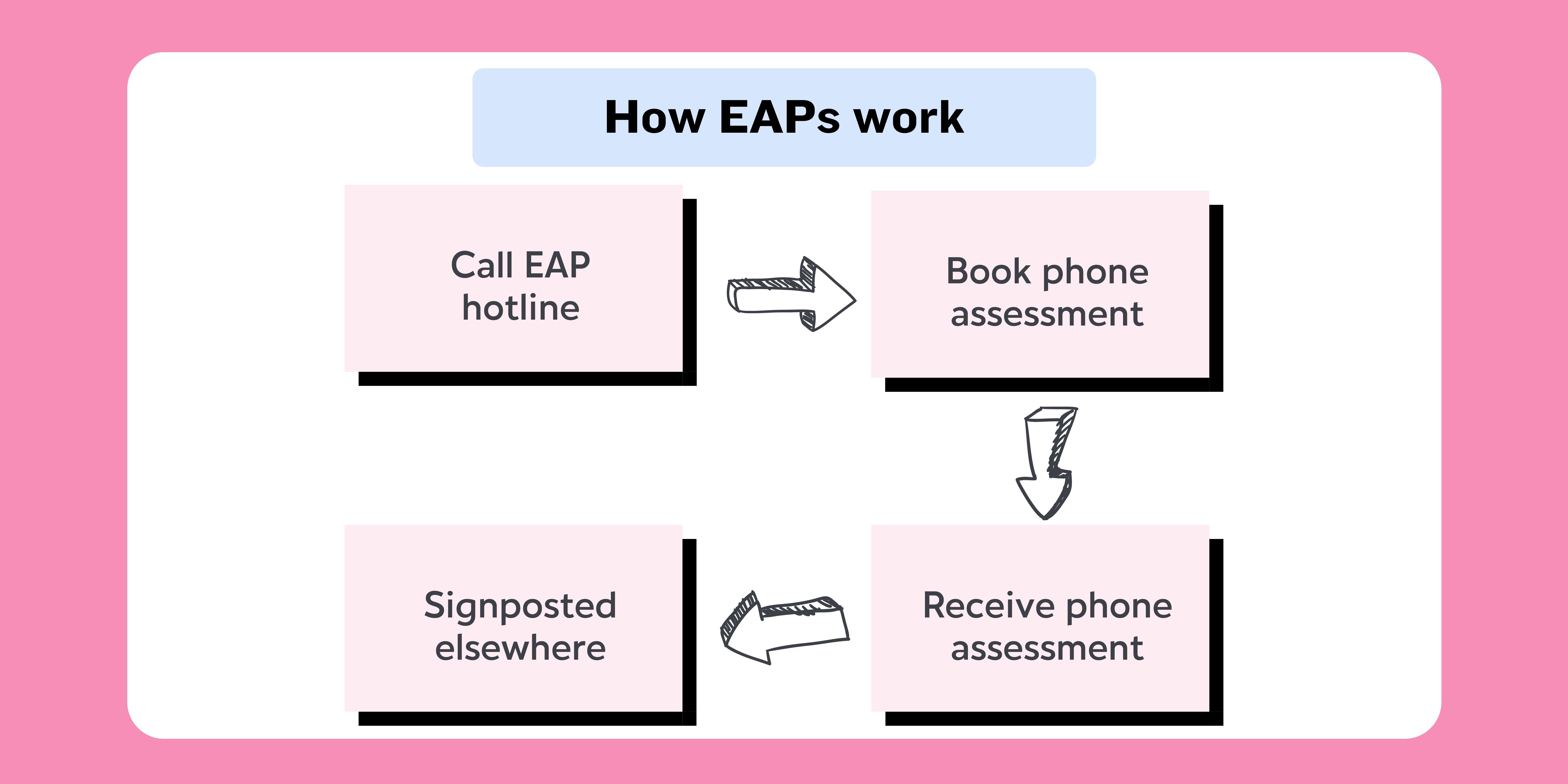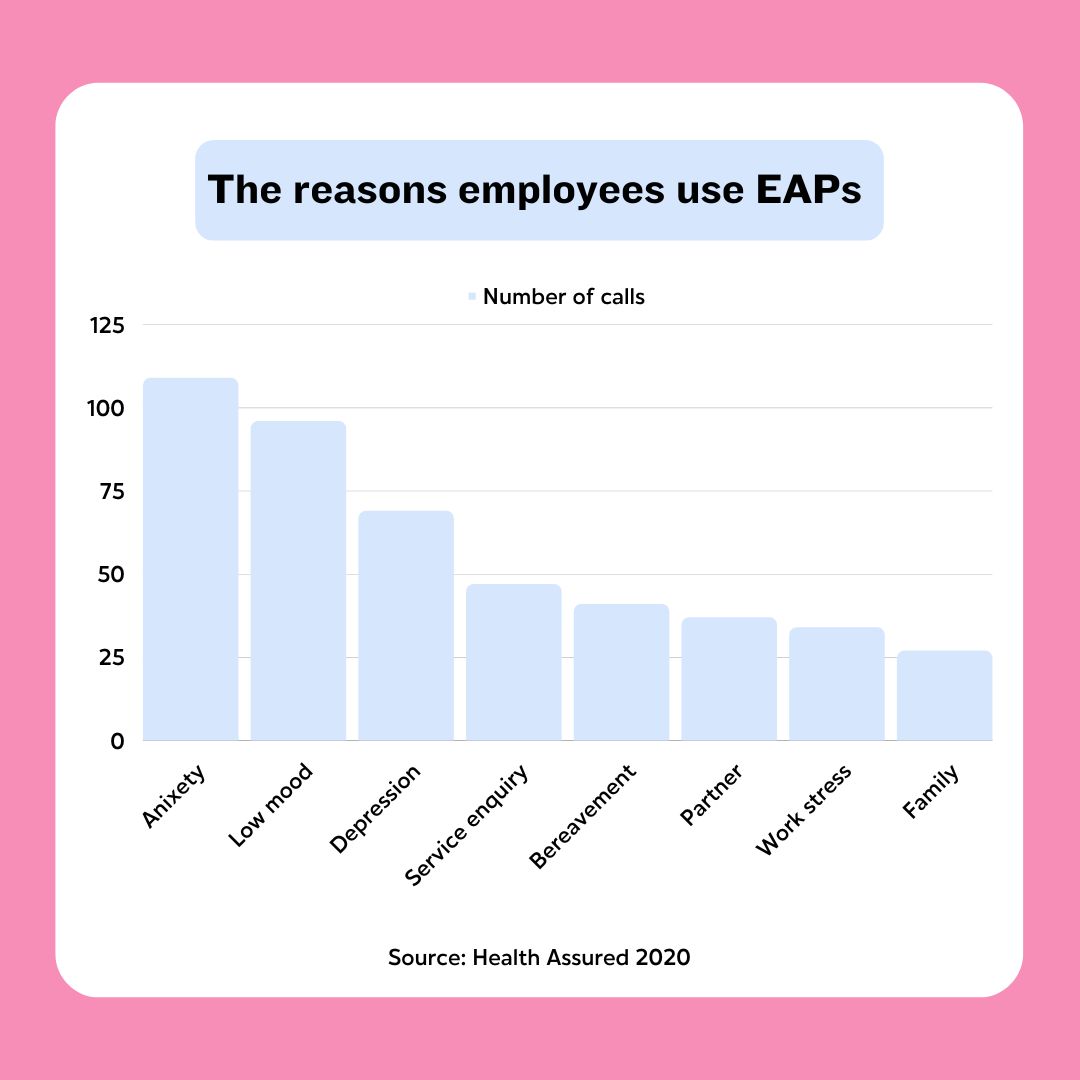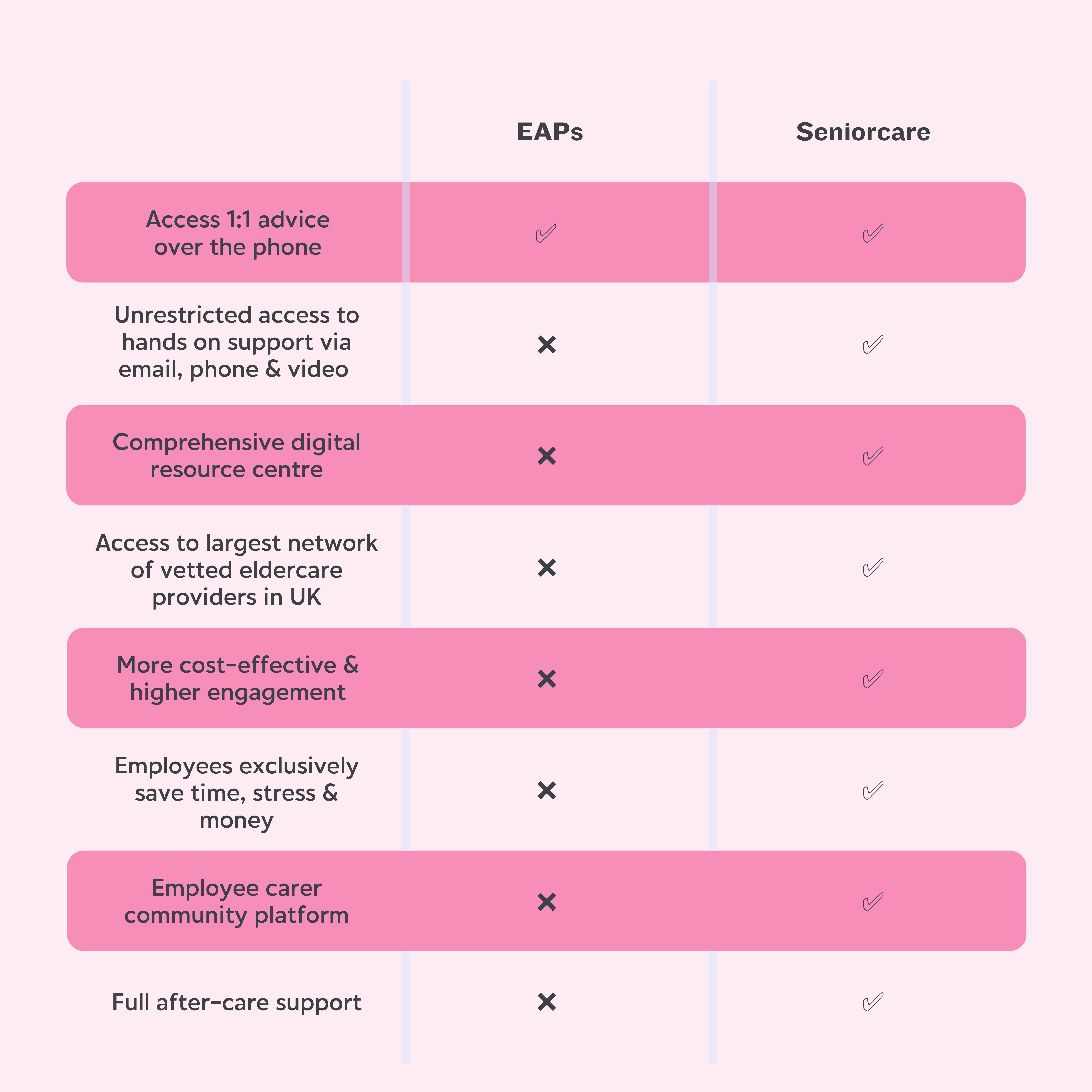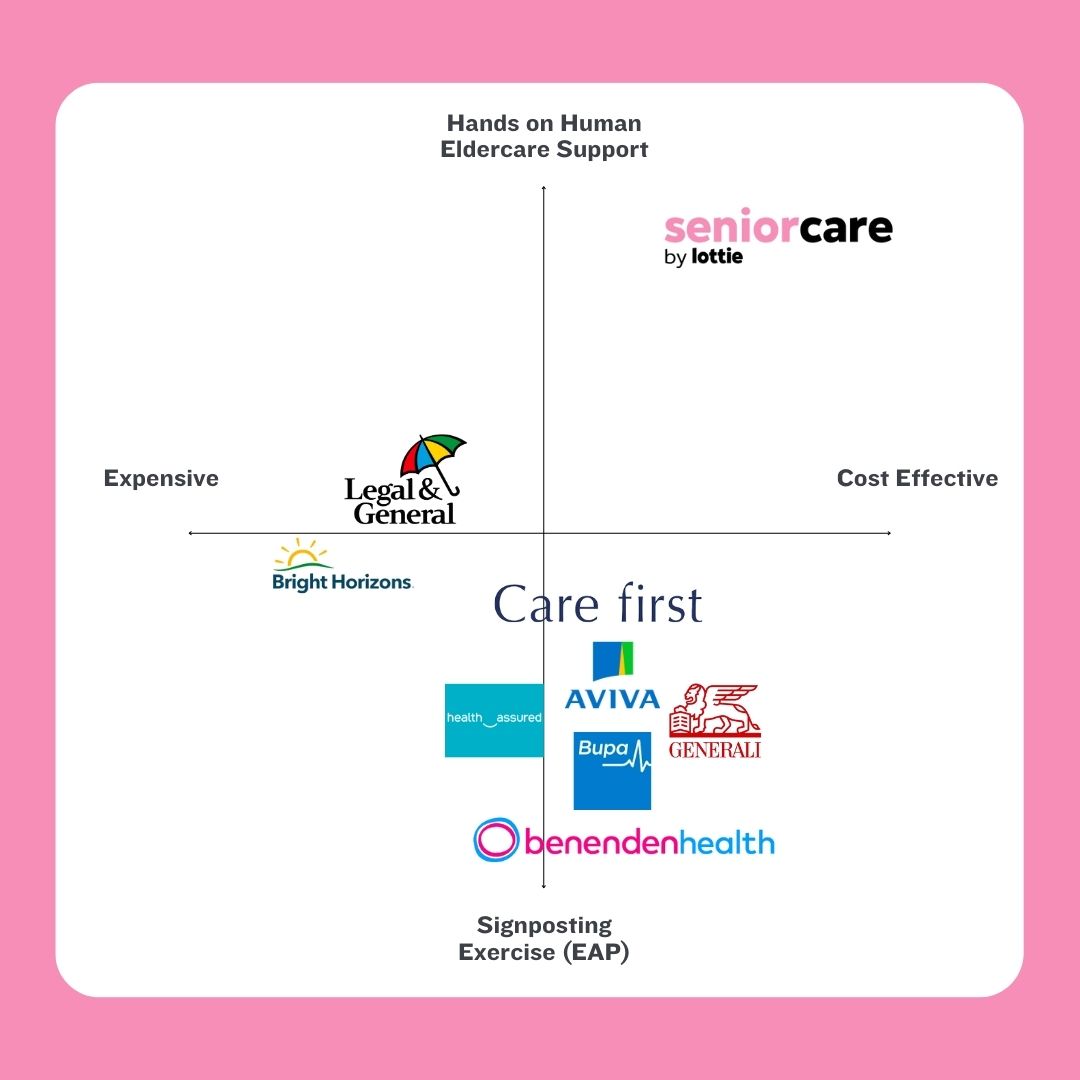This site uses services that use cookies to deliver a better experience and analyse traffic. You can learn more about the services we use in our cookies policy.
EAPs are dead. Long live specificity


Robin Hill
|
Copywriter
12 May 2023
The world of benefits is broken. For too long, organisations have taken a conservative and apathetic approach to their employee benefits by implementing EAPs. Whilst they might have the best intentions at heart to help the broadest amount of concerns in the workplace, EAPs lack the specificity and purpose to help anyone.
In this article we will explore the below hypotheses:
- Whilst EAPs might be able to provide a breadth of coverage for employee's wellbeing concerns, it's doubtful how comprehensive this support actually is.
- Employees with eldercare needs require a more hands-on, supportive approach, with unrestricted access to a real Care Expert to help ensure a continuity of care is achieved.
What is an EAP?
But first, what is an EAP? An EAP (Employee Assistance Programme) is a service many organisations use to provide their employees with counselling or professional guidance. Predominately used for mental health issues, the idea is that employees can use an EAP service and find the support that matches their need.
And how does the EAP process work? If you're an employee looking for support, you call your organisation's EAP hotline, where you can request a call back for assessment, then you will receive a callback from a non-specified professional to assess your requirements. Once the assessment has been completed you will be either offered counselling support (~20% of the time) or be signposted towards self-help resources (60% of the time).

In process alone, it's easy to see how an EAP differs from Seniorcare by Lottie's eldercare employee benefit. Whilst EAP's signpost to a wider breadth of service, Seniorcare by Lottie are highly specified, connecting employees with an expert to help them understand, find and fund care for their elderly loved one. Think liaison rather than signposting exercise. Chalk and cheese.
What EAPs give organisations
EAPs give organisations breadth of service. With 88% of businesses in the UK having an EAP service at their disposal, employees with a spectrum of mental health issues are able to reach out to their business' EAP for support. The support given to the employees is a little harder to encapsulate. Depending on the case, the context and timing, two employees with similar symptoms might get a completely different resolution. At the expense of breadth, consistency is seemingly lost.
Below is an example of the reasons why people contact EAPs in the workplace:

The problem with EAPs
Previously in this article, we have already articulated one of the clearer issues with implementing EAPs into your organisation. The lack of clarity. It isn't immediately obvious what kind of support you will get, if any, for your mental wellbeing concerns. The route to assessment is, in the words of Paul McCartney, 'a long and winding road'. And once you reach the point of resolution you might not get support from an expert, merely signposted elsewhere to handle the situation on your own.
But the other, arguably greater, issue with EAPs is the usage. It is estimated that less than 5% of an organisation uses their EAP service within a year of having it. Whether this is due to poor internal communications or a lack of effectiveness, it's very likely that it's because of both. Larger organisations are notorious for poor internal communications and getting the messaging across that this service actually exists is hard in itself. EAPs boast that they improve recruitment, retention and workplace culture, but if a tree falls in the forest and no one is around to hear it, does it make a sound? You tell me.
EAP Eldercare Support vs. Seniorcare by Lottie

Although Seniorcare by Lottie is a highly precise service that helps employees' families with eldercare support, we aren't a holistic mental health service that is able to assist with all employee's mental wellbeing. However, it is still worth considering that a lot of mental health concerns can be repercussions of looking after an elderly loved one. No matter how rewarding an experience that can be, unpaid caregiving responsibilities or bereavement can quickly lead to anxiety, depression, low-productivity and absenteeism.
On the other hand, I don't think it would be unfair to suggest that EAP eldercare support is almost non-existent. Yes, you will be able to call your organisation's EAP hotline and ask for eldercare support, but that person is not trained and, potentially, not able to direct you to someone with eldercare expertise. It begs the question, are EAPs merely there to tick a box? Aside from directing you to Age UK or a gov.uk website, what kind of support are they actually providing? Eldercare demands immediacy of support. If your loved one is about to be discharged from hospital and can't support themselves on their own, that is not a scenario that can be put on hold for days, weeks or months at a time.

What does modern wellbeing support look like?
Employees, now more than ever, need modern wellbeing solutions that add value to their lives and help with their work-life balance. People are working harder than ever, but earning less than they have. Organisations can make a statement of intent and give employees specified wellbeing benefits that enriches their lives. But how can businesses give employees the breadth of support they need, while also giving them hands-on support? The only answer possible is a smorgasbord (a wide range of something; a variety) of expert-led benefits. Here's an example of compelling, modern workplace organisations that are changing the narrative on workplace benefits:
Mental Health - Oliva
Financial wellbeing - Bippit
Childcare - Busy Bees
Green initiative - Emitwise
And of course...
Eldercare - Seniorcare by Lottie
Now that's what I call a buffet! Of course, these are just a few of the options available out there, but it gives you an idea of the specificity and purpose-led benefits catered towards real change. Just imagine a workplace with all these initiatives in their remit.
We know that it is far harder for HR and Benefit Managers to create a spectrum of wellbeing support this way. EAPs are a naturally easier alternative. However, if they are under-utilised and under-valued, what’s the point of having it there in the first place? Creating a culture worth shouting about takes time and effort and every single organisation can do better to cultivate it. There is no such thing as an overnight win. Your employees deserve support, not a call centre.
Other insights
A collection of engaging articles, guides and insights for leading Benefits Professionals



